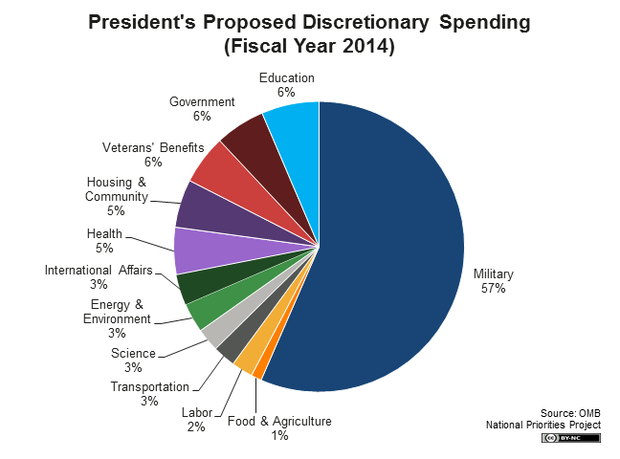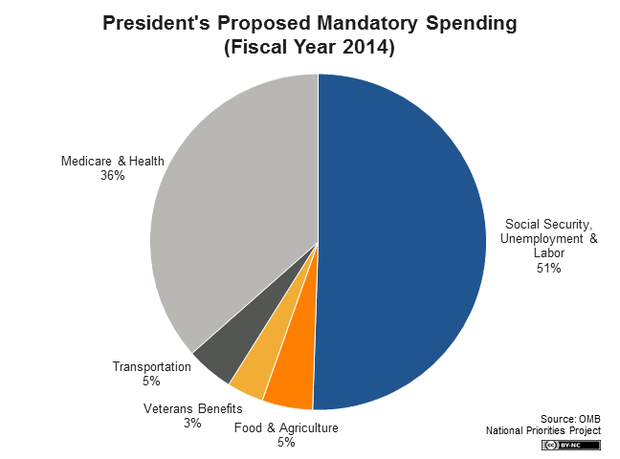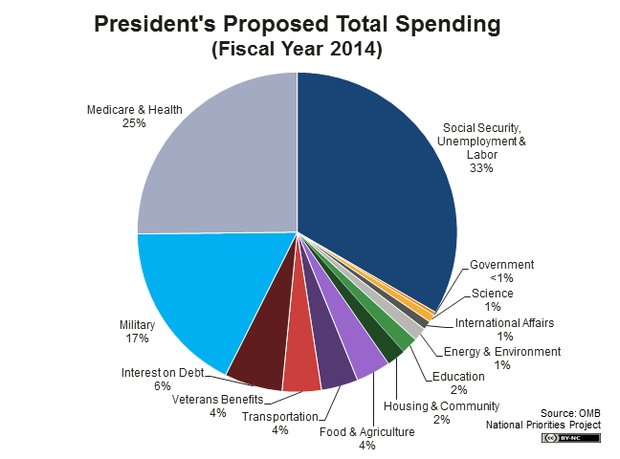Veterans
Related: About this forumPentagon could cut thousands more employees, save $50 billion, says study by former chiefs
http://www.startribune.com/politics/national/225064822.htmlPentagon could cut thousands more employees, save $50 billion, says study by former chiefs
Article by: PAULINE JELINEK , Associated Press
Updated: September 24, 2013 - 2:25 PM
WASHINGTON — The Defense Department could shed 60,000 more troops than planned and 50,000 civilian employees without hurting U.S. fighting power, four former members of the Pentagon's Joint Chiefs of Staff said in a new report on military strategy and spending.
Nearly $50 billion in budget cuts are recommended in the report released Tuesday and authored by a 17-member panel including two former vice chairmen of the joint chiefs, a former Air Force chief and former Navy chief. Writing for the Stimson Center think tank, the authors suggested cuts they said would replace future rounds of automatic, across-the-board cuts in the Pentagon's budget called for in a deficit reduction deal two years ago. The Stimson Center is a nonpartisan global security group in Washington.
The biggest proposed saving — $22.4 billion in the fiscal year starting October next year— would come in cutting overhead such as civilian employees, headquarters staff and contractors as well as reforming pension and health programs, the report said.
"The Defense Department is not a jobs program," Barry M. Blechman, one of the authors and a Stimson co-founder, said in a Capitol Hill conference where the report was released. He said lawmakers have "stood in the way" of some of the cuts because they mean job losses among constituents.
unhappycamper comment: Note the DoD goes after people first; the MIC big boys get a free pass.
Stargazer09
(2,159 posts)In other words, take away the only two benefits remaining for those of us who served.
Wonderful.
MADem
(135,425 posts)At least they're including contractors in the mix, for a change. It's not just civil service and acdu personnel...
Historic NY
(37,854 posts)or retiring vets.
MADem
(135,425 posts)Bureaucracy begets bureaucracy.
If you hire a vet, their time working for the government as a civilian is added to their military service and becomes part/parcel of their pension package. The contractors get more money up front, and none downstream, and they can be dumped on a moment's notice. It's much harder to dump a career civil servant.
I think there needs to be independent "desk audits" of every damn job (and that includes the Big Wigs, the top management tiers) associated with government. Not just contractor positions, but civil service ones as well. The military does this every so often, as they adjust end strength to meet operational requirements, and they will probably need to keep tweaking their billet allocations as we continue with this latest drawdown.
So much money goes to waste, and in many cases, the bean counters can't figure out where the hell the money went even when they go back and try to audit the process.
westerebus
(2,977 posts)If you are a vet and qualify for a civil service job and get through the hiring process, you may buy the years spent in military service and apply that time toward the total of years necessary to qualify for retirement. It is not a freebie.
Most new vet hires are under the FERS program and are not under the older civil service pension program which was changed after Regan "saved social security" back in 1985.
Those who were hired under civil service pre-1985 have retired for the most part.
MADem
(135,425 posts)ends up getting a retirement "leg up" over those entering civil service from the civilian sector. S/He does less work over the course of a career in civil service for a larger pension that the nonvet gets. That same vet, had he not entered civil service, wouldn't be getting a dime from the government unless he or she had retired from the military.
So it does end up costing the USG more. A contractor is hired, paid for the time they work, and dumped with no further obligation or association with the government.
That's how it is supposed to work, in practice. The problem comes when Congress buys stock in some of these contracting businesses and have an interest in writing them lucrative contracts that keep them stuck to the ship of state like a fervent barnacle. In those instances, these "temporary" contractors can make money hand over fist for many years and, if they're fiscally prudent, can end up doing very well for themselves and feather their old age nest at the same time.
westerebus
(2,977 posts)10 points for wounded vets.
Is this unfair?
MADem
(135,425 posts)The facts remain, though--and I am talking about what "is"--not the "good/bad" dynamic of it all--is that preferences do cost money.
That's all I am saying.
As someone who served for decades in uniform, I can talk about this issue. I've seen the good and the bad of contracted support. When done prudently, it works well. When it becomes a way to affix a permanent siphon to the DOD, it's a resource drain. This is why I support in-depth, independent audits. I would like to see a few peaceniks on the audit board oversight team; there's nothing like a bit of vigorous opposition to give one an opportunity to view excesses with a fresh eye.
Good grief, I don't expect a fellow vet to get shirty with me for stating a few facts. I'm not "cheerleading" the fucking over of my fellow veterans, if that's the idea in your head--I'm just discussing the topic in a three-sixty fashion.
westerebus
(2,977 posts)Not every one understands how the civil service works, let alone veteran's preference.
I tried to explain that in the first post. Civil service pensions have changed.
Almost everybody is covered under social security and the Federal Retirement System which is an IRA. No one under the new system can double dip with out an offset of 90% to their social security if they were retired under the older civil service pension program.
So even though I pay into social security, I will never collect more than 10%. That's in the plus column for the civilian side who never did military service or worked as a government employee.
I did not go to work for DOD.
I know people who did contract work for DOD that were retired military. What they got paid was far larger than what a government employee would have received The offset being in lieu of a pension or any thing else a vet might receive. I'm not a big fan of government contractors. The mess they leave behind has to be dealt with by the government employees.
Are we good?
gopiscrap
(24,170 posts)TreasonousBastard
(43,049 posts)with thousands more on the street because of what they don't spend.
unhappycamper
(60,364 posts)
See that big blue chunk o pie? This camper thinks our Nobel Laureate prez has become enamored of war profiteering and mongering.
Why else would we be spending 57% of all discretionary on war? Why do we continue to buy $7 billion dollar submarines and $7 billion dollar stealth destroyers and a $40 billion dollar aircraft carrier?
As Mark Felt once said "Follow the money."
57% is a shitload of money.
TreasonousBastard
(43,049 posts)since the Cold War, it's the only discretionary spending that doesn't involve a huge fight.
It's out of hand, for sure, but every congressional district benefits in some way so it's become impossible to slow it down. Even stuff the military doesn't want is still made because some congressman pushed the project.
MADem
(135,425 posts)That's the President's nest egg. He is--after all--the Commander in Chief. That's his "discretionary" spending proposal--not his MANDATORY spending proposal.
That looks more like this:

It's easy to make something look worse than it is. I think we could reduce our military spending enormously without much if any risk to our national security, but I do NOT want to do that on the backs of veterans--and that's usually where Congress goes when they look for efficiencies.
unhappycamper
(60,364 posts)And it occupies 57% of all discretionary spending.
MADem
(135,425 posts)We're not spending all our dough on the military. It's around seventeen percent, and that is the whole magilla.
http://nationalpriorities.org/budget-basics/federal-budget-101/spending/

unhappycamper
(60,364 posts)
That big, blue Pacman on the right represents 57% of Discretionary spending.
On a National scale it's 17%; in our Discretionary budget it's 57%.